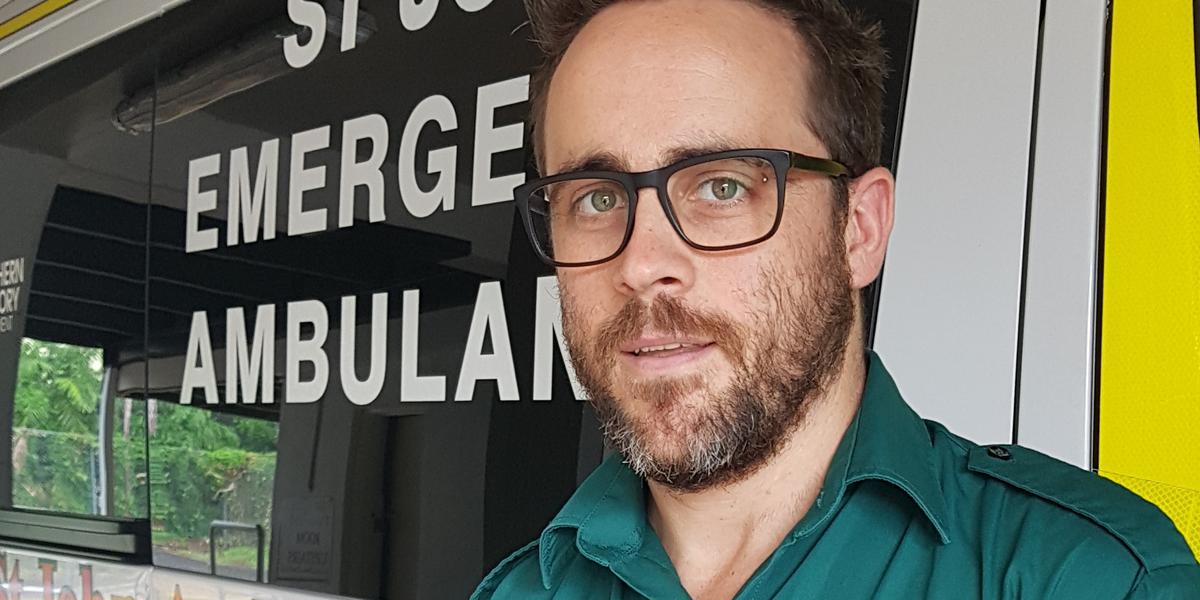Advanced Paramedicine
We provide the first course in Australia that combines the scope of an intensive care paramedic and an extended care paramedic in a single specialisation.
Those working in the healthcare industry never stop learning. Paramedics are no exception. These postgraduate programs are designed to develop your skills and knowledge in clinical reasoning, decision-making and practice for the management and provision of advanced, effective and comprehensive health care.
You’ll also develop your leadership skills in planning and implementing healthcare in acute and non-acute contexts within the community while considering legal, ethical and political considerations of practice within advanced paramedicine.
Course Options
Master of Advanced Paramedicine (Specialisation)
1.5 years min, 4 years max
Online
View course details Master of Advanced Paramedicine (Specialisation)
Graduate Diploma of Advanced Paramedicine (Specialisation)
1 year min, 3 years max
Online
View course details Graduate Diploma of Advanced Paramedicine (Specialisation)
Graduate Certificate in Advanced Paramedicine
0.5 year min, 2 years max
Online
View course details Graduate Certificate in Advanced Paramedicine
Designed for practicing paramedics, in consultation with public and private industry sectors.
Develop your leadership skills in planning and implementing healthcare in acute and non-acute environments.
Have the flexibility to study part-time, online, and at times that are suitable with your work and home life.
Study options
Advanced skills
Take core units in advanced clinical reasoning, drawing on theoretical and clinical concepts.
Specialisations
Specialise in advanced management of complex cases and acute cases in paramedicine.
Research or coursework pathways
Take on meaningful research projects or further hone your skills by choosing between the research or coursework pathways.
Course breakdown
1
Graduate Certificate in Advanced Paramedicine
50 credit points
Core units
25 credit points
- Advanced Clinical Reasoning in Out of Hospital Practice
- Advanced Pharmacology & Medication Management in Paramedicine
Then, choose two electives from a choice of eight.
2
Graduate Diploma of Advanced Paramedicine (Specialisation)
100 credit points
Complete the Graduate Certificate then commence your specialisation units:
- Advanced Management of Complex Cases in Paramedicine
- Advanced Management of Acute Cases in Paramedicine
3
Master of Advanced Paramedicine (Specialisation)
150 credit points
Complete the Graduate Diploma then complete the unit:
- Health Research Methods
Choose a research (37.5CP) or coursework (37.5CP) pathway to finish the course.
Career outcomes

A paramedic education that opens doors and opportunities
Justin studied Paramedic Practice remotely and now he’s on his way to being registered.
"The University of Tasmania is at the forefront of paramedic education in Australia and my education has already opened many doors and opportunities for me."
As a graduate, you will be well placed for career progression as a paramedic, particularly in those areas of specialisation. The programs will also provide opportunities for you to explore research as a career through the study of units that will provide insight into further research higher degrees.
Employment market size
Australia-wide
Median pay for full-time employee
Five years to 2024
Percentage of full-time employed
Share of market
Entry information
Entry requirements
Entry requirements vary across courses. You'll find the requirements on our individual course pages. These can be accessed from Course Options, which is located at the top of this page.
We encourage you to apply for the courses you most want to study. If you're not eligible to enter your chosen course right now, our admissions team will work with you to find the best pathway option.
Credit for prior learning
The University of Tasmania aims to provide you with credit for approved prior study or equivalent professional experience which exceeds standard entrance requirements for courses. For more information please visit Recognition of Prior Learning.
English language requirements
For those applicants who are nationals of and currently residing in a country where English is not the official language, evidence of an IELTS or TOEFL test must be provided. For more information, please visit International Future Students.